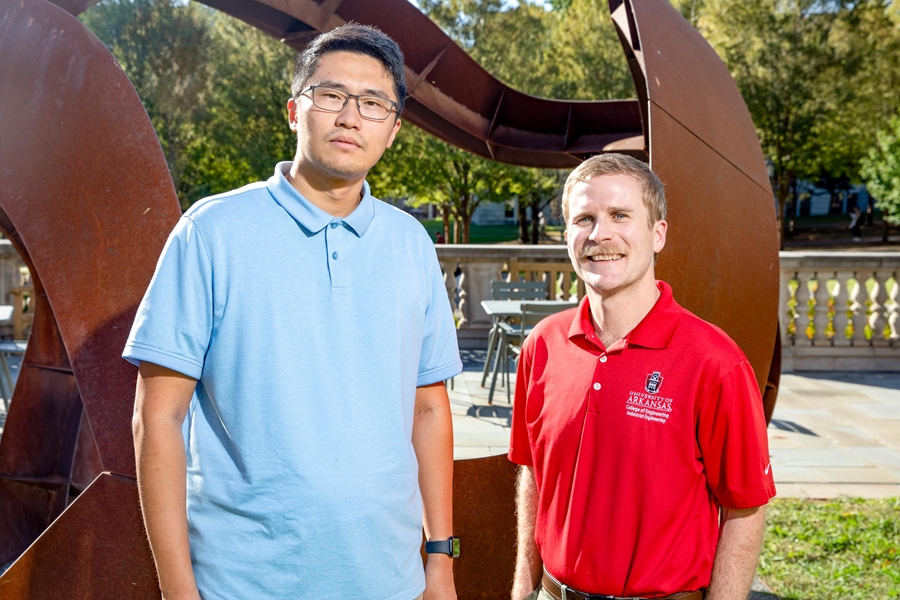The U.S. Air Force Office of Scientific Research has awarded approximately $588,000 to two researchers at the University of Arkansas to investigate the role of information in safeguarding critical networks during disruptive events. The project, led by assistant professors Haoming Shen and Robert Curry, aims to develop mathematical models that will enhance the way information is collected, shared, and protected during crises, including natural disasters and cyberattacks.
Their research will focus on understanding how the flow and accuracy of information influence a community’s ability to respond effectively to disruptions. The team will also assess how to strategically allocate limited resources, such as sensors or drones, to detect threats and protect essential infrastructure.
Shen, who serves as the principal investigator, emphasized the project’s objective: “We want to proactively configure sensor networks to detect any potential disruptions in our network.” He acknowledged the financial constraints faced in deploying such technologies, stating, “In practice, deploying sensors or conducting sensing tasks requires investment, and the total amount of a budget is always limited.”
Curry elaborated on the study’s goals, explaining that the team will explore two critical questions: first, how can defenders use information to anticipate and discover potential attacks? Second, how might misinformation or strategic information sharing be employed to deter or deflect threats? “If we put it in non-mathematical terms, we’re trying to make a set of data-informed decisions, and we’re trying to make those decisions with uncertain information,” Curry added.
While the study will primarily involve theoretical modeling, the findings are expected to have practical applications in future crisis planning and infrastructure protection, particularly in transportation and logistics networks. According to a news release from the University of Arkansas, this research could significantly contribute to enhancing national security.
The funding was granted through the Defense Established Program to Stimulate Competitive Research (DEPSCoR), an initiative aimed at building research capacity at universities in underrepresented states. U.S. Senator John Boozman, a supporter of DEPSCoR, commented on the project’s significance, stating, “This project provides an opportunity to pursue high-quality research with real-world applications like protecting critical infrastructure. Investing in this project reinforces and enhances our largest institution’s significant role in supporting national security.”
Additionally, the University of Arkansas recently announced its participation in a national research team focused on developing advanced video object tracking technology, backed by a Defense Advanced Research Projects Agency (DARPA) contract that could yield up to $6 million in federal funding. This collaboration reflects the university’s commitment to advancing research that has a direct impact on national defense and security.







